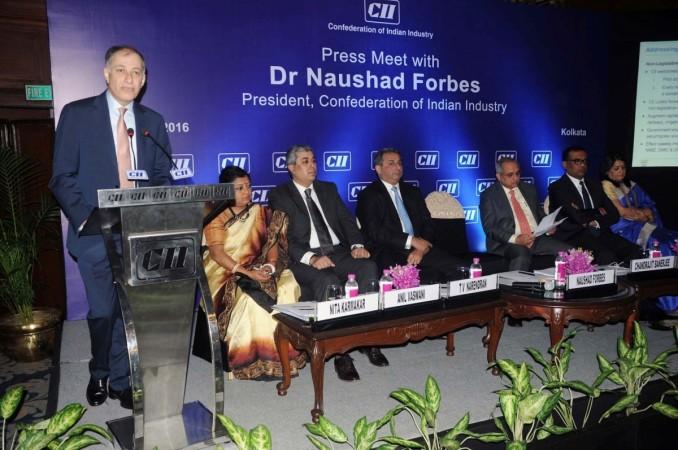
The Confederation of Indian Industry (CII) is of the view that the Goods and Services Tax (GST) at around 18 percent would be ideal for the economy and broadly insulate the country against inflation. If the rate ends up much higher than that, it could be counter-productive.
"A rate of 18 percent should be fine. The intention of GST is not to increase or decrease the revenue for the state. A higher rate would damage consumption...demand will be directly hit," CII president Naushad Forbes said during a press conference in Kolkata on Tuesday after an event, according to a report in The Financial Express.
Besides being ideal, he said that the 18 percent GST rate would also be "revenue neutral".
He also expressed confidence that there would be a spurt in tax collection once the GST replaces most of the existing indirect taxes.
"As more and more inclusion at the modest rate will end up with a rapidly growing tax revenue," he said.
He reiterated the widely-held view of the industry that the GST would add about 1.5 to 2 percent to India's gross domestic product (GDP).
Meanwhile, states have got going with the next steps towards implementation of the GST Bill. On Wednesday, the Madhya Pradesh assembly ratified the Constitution Amendment Bill, becoming the seventh state to do so after Assam, Gujarat, Himachal Pradesh, Bihar, Jharkhand and Chhattisgarh.
The GST Bill will have to be ratified by at least 15 states after which it will be sent to the president for his assent. Earlier this month, the Bill was passed unanimously by the Rajya Sabha on Aug. 3 and the amendments were passed by the Lok Sabha a few days later.
The Narendra Modi government plans to implement the GST from April 1, 2017.

















